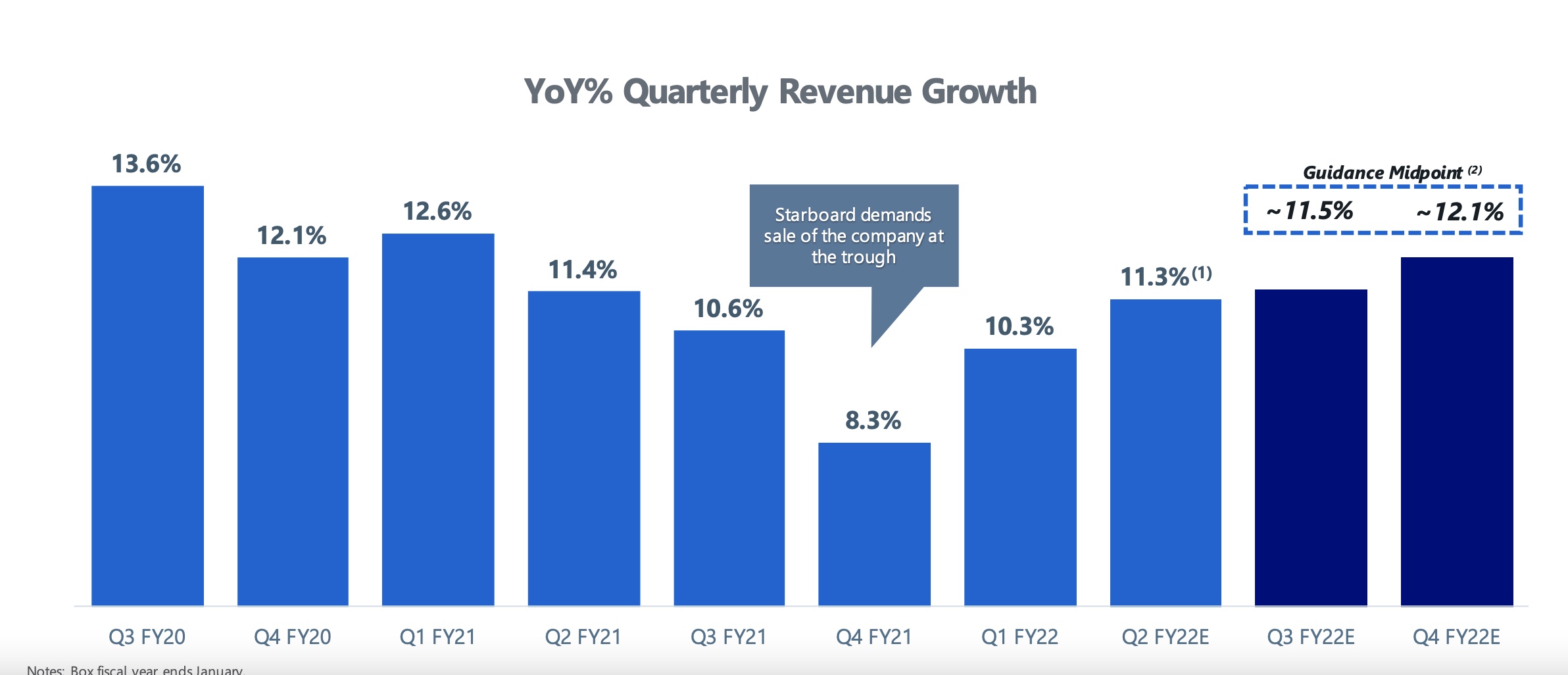Throughout its history as a public company, Box has had a bit of a bumpy ride. The company was founded back in 2005 as a simple consumer file sharing service, but shifted a few years later to focus on enterprise and build a modern content management system for the still-developing cloud and mobile world.
Once a Silicon Valley startup darling, Box fell hard after filing its S-1 to go public in 2015 as people questioned its cash burn rate. That led to its IPO being delayed for months, perhaps a sign of the struggles it would have finding traction in the market in later years. Most recently, Box had a proxy battle with one of its larger shareholders, Starboard Value, which the company eventually won.
It is now a pivotal moment for the cloud content management company. Box has a $500 million investment from KKR, which means it has funds to buy some small companies, fill in the product road map and perhaps fuel some inorganic growth, as it did when it bought e-signature company SignRequest in February.
Box has been on a bit of a revenue roll as well, in recent quarters. After posting 13.6% growth in in the third quarter of FY20, it began a downward trend that saw growth drop to 8.3% in the fourth quarter of FY21. That was when Starboard decided to pick its proxy fight. But Box came off the mat from that nadir, beginning a slow upward trajectory that its management is projecting will continue for the next few quarters.

Image Credits: Box
This chart doesn’t detail huge growth, but it shows growth all the same. Co-founder and CEO Aaron Levie has faced down trouble before, and he took a mostly conciliatory tone when it came to his detractors, admitting that there was much to learn and he’s always been about improving the company.
We spoke to Levie about his trials and tribulations and where he expects to take his company from here.
Onward through it all
The last year hasn’t been easy for Levie as leader of a company in the midst of a proxy battle, but the CEO says he has not lost his optimism or his enthusiasm for the job. That is impressive when you consider he started the company in a dorm room at USC in 2005 — he’s been working on Box his entire adult life.
“If there’s one thread that runs through any difficult situation we’ve ever been in, it’s actually just my sheer excitement and optimism for the future. And I have that optimism about technology in general and its impact on the world, and what it can do for us. I have that even more so for Box, specifically, and the opportunity around what we’re building,” Levie told TechCrunch.
